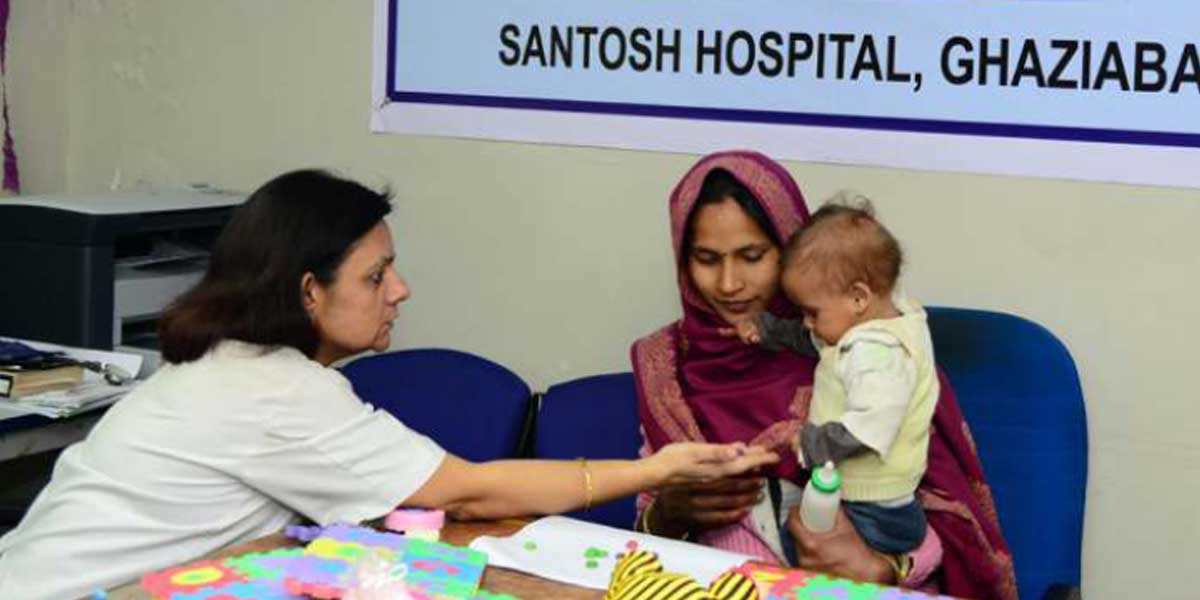
The purpose of postgraduate (PG) education in the field of healthcare is to create specialists who possess advanced knowledge, skills, and competence in their chosen area of study. These specialists should be capable of providing high-quality healthcare to the community, while also advancing the cause of science through research and training.
Through the rigorous training provided in PG education, students develop an in-depth understanding of their chosen specialty and learn how to effectively manage and treat complex healthcare problems. They should be able to keep up with the latest advances in their field and apply them to their clinical practice. Furthermore, they should acquire the necessary teaching skills to educate and train the next generation of medical and paramedical students.
To achieve these goals, it is essential that PG education provides learners with illustrative guidelines for learning and assessment. These guidelines should be developed by subject-content specialists who have a deep understanding of the specific requirements of their field. The Reconciliation Board of the Academic Committee plays a crucial role in ensuring that these guidelines are uniform and aligned with the overall purpose and content of the curriculum.
The competencies required for successful completion of a PG program should be clearly defined and structured, with appropriate assessment methods in place to measure the students' progress. These competencies may include a range of domains of learning, such as knowledge, skills, and attitudes, that are essential for the students to master.
In conclusion, PG education plays a critical role in producing competent and skilled healthcare professionals who can provide high-quality care to the community, advance scientific knowledge through research, and train the next generation of healthcare providers. To achieve these goals, it is crucial that PG education programs provide learners with illustrative guidelines for learning and assessment, while ensuring that the competencies required for successful completion of the program are clearly defined and structured.
Click here if you want to know about course fees.
The MD Course in Pediatrics aims to produce competent pediatricians who can provide quality care to children and adolescents, while keeping up with the latest developments in the field. The program objectives include:
| S.No | FACULTY NAME | DESIGNATION |
| 1 | DR. VEENU AGGARWAL | PROFESSOR & HOD |
| 2 | DR. DINESH KUMAR JUNEJA | PROFESSOR |
| 3 | DR. ALKA AGRAWAL | PROFESSOR |
| 4 | DR. RADHIKA MANTRY | ASSOCATE PROFESSOR |
| 5 | DR. ANISA RIYAZ | ASSISTANT PROFESSOR |
| 6 | DR. RASHI BHARGAVA AGARWAL | ASSISTANT PROFESSOR |
| 7 | DR. AARTI ANAND | ASSISTANT PROFESSOR |
| 8 | DR. ABHISHEK JAIN | ASSISTANT PROFESSOR |
| 9 | DR. FARHA KHAN | SENIOR RESIDENT |
| 10 | DR. LOVISH GUPTA | SENIOR RESIDENT |
| 11 | DR. GARIMA SAXENA | SENIOR RESIDENT |
| 12 | DR. NAVED AKHTER | SENIOR RESIDENT |
CURRICULUM:
Assessment:
There shall be four theory papers.
Paper I: Basic sciences as applied to Paediatrics
Paper II: Neonatology and community Paediatrics
Paper III: General Paediatrics including advances in Paediatrics relating to Cluster I specialties
Paper IV: Paediatric Medicine including advances in Paediatrics relating to Cluster II specialties.
Cluster I: Nutrition, Growth and Development, Immunization, Infectious disease,
Genetics, Immunology, Rheumatology, Psychiatry and Behavioral Sciences, Skin, Eye, ENT, Adolescent Health, Critical Care, Accidents and Poisoning.
Cluster II: Neurology and Disabilities, Nephrology, Hematology and Oncology, Endocrinology, Gastroenterology and Hematology, Respiratory and Cardiovascular disorders.
Thesis: Submitted six month before theory examinations.
Practical Examination:
Case I : Long case
Case II (Newborn)
Case III : Short case.
OSCE stations (Procedurl and communication skills)
Long book records
Oral /Viva voce examinations.
Teaching & Learning Methods:
In a postgraduate teaching program, the following teaching and learning methods are essential:
General Principles:
• PG training should be Competency based, skills-oriented and self-directed, with clinical and academic work serving as the primary source of learning.
• Formal sessions should supplement this core effort.
• Acquisition of practical competencies is the keystone of PG medical education.
Teaching Methodology:
• Regular bedside case presentations and demonstrations, didactic lectures, seminars, journal clubs, clinical meetings, and combined conferences with allied departments are important.
• The postgraduate student should be given the responsibility of managing and caring for patients under supervision.
Formal Teaching Sessions:
• At least 5 hours of formal teaching per week are necessary.
• Attend accredited scientific meetings (CME, symposia, and conferences).
• Additional sessions on research methodology, teaching methodology, basic sciences, biostatistics, hospital waste management, health economics, and medical ethics are suggested.
• The postgraduate students should participate in the teaching and training program of undergraduate students and interns.
Thesis:
• Identify a relevant research question, conduct a critical review of literature, formulate a hypothesis, determine the most suitable study design, and prepare a study protocol.
• Undertake a study according to the protocol, analyze and interpret research data, and draw conclusions.
• Write a research paper and present the work in the form of a thesis.
Career Prospective:
After completing an MD in Pediatrics, graduates have a wide range of career opportunities. Some of the career prospects are:
Overall, there is a high demand for pediatricians and pediatric specialists, and the career prospects for MD Pediatrics graduates are promising.
>